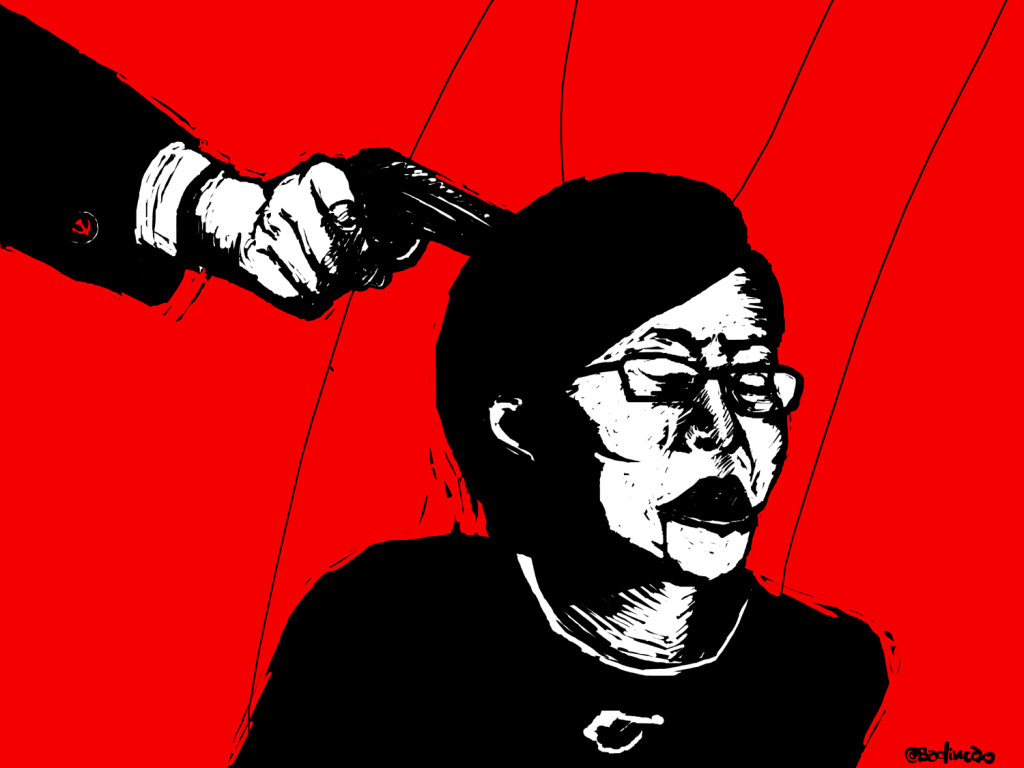By ROBERT FIFE AND STEVEN CHASE

The head of the House Armed Services Committee in Washington is urging Ottawa to be “more vigilant” in its national-security process when Chinese investors want to buy Canadian high-tech firms that specialize in sophisticated military hardware.
Representative Mac Thornberry was responding to The Globe and Mail reports on a bid by Hytera Communications Corp. of Shenzhen, China, to take over Vancouver-based Norsat International Inc., which sells satellite technology to the U.S. military and NATO.
The government approved the sale without a formal national security review.
Mr. Thornberry, chair of the House of Representatives committee, warned that China is taking advantage of weaknesses in Western oversight of foreign investment to buy cutting-edge technology that may help its military.
“I have growing concern that countries like China are investing in various projects, exploiting the seams of regulatory structures, and using other methods to obtain key defence technologies,” Mr. Thornberry said in a statement to The Globe when asked to comment.
“The public and private sectors of the U.S. and key friends and allies must be more vigilant and must take steps to prevent this sort of exploitation,” he added.
Representative Walter Jones, who also is on the committee, joined in the criticism and called for the U.S. military to review its contracts and relationships with Norsat.
“The United States cannot stop Canada from allowing the Chinese takeover of Norsat,” Mr. Jones told The Globe.
“We can and should, however, re-evaluate any business dealing that potentially affects our defence initiatives.”
This is the second warning from the U.S. capital that Ottawa is taking a laissez-faire approach to investment from China and jeopardizing U.S. national security interests.
Last week, a key member of a U.S. congressional watchdog agency urged the U.S. Defence department to “immediately review” its business arrangements with Norsat.
In early June, the Trudeau cabinet approved the sale of Norsat to Hytera, a Chinese telecom giant that has been accused of stealing U.S. technology.
Hytera is facing a lawsuit from U.S. rival Motorola, which accuses the firm of massive intellectual property theft.
Michael Wessel, a member of the U.S.-China Economic and Security Review Commission, which reports to Congress, said “the sale of Norsat to a Chinese entity raises significant national-security concerns for the United States as the company is a supplier to our military.”
He said the Liberals are willing to sacrifice national-security interests of Canada’s most important ally in exchange for a bilateral free-trade deal with China.
Two former directors of the Canadian Security Intelligence Service – Richard Fadden and Ward Elcock – have said the transaction should have been subjected to a full-scale security review.
The office of Innovation, Science and Economic Development Minister Navdeep Bains is refusing to say whether Canada will subject the Hytera deal to further scrutiny.
His director of communications, Pauline Tam, and his press secretary, Karl Sasseville, did not respond to repeated requests from The Globe to say whether Ottawa will re-examine the deal.
Norsat is the second case in a matter of months in which the Liberals have approved a controversial sale of sensitive technology to Chinese investors.
In March, the government approved the sale of a Montreal high-tech firm, ITF Technologies Inc., to O-Net Communications of Hong Kong, a firm partly owned by Beijing.
The former Conservative government had blocked the deal on the grounds that it would undermine Western armed forces’ technological edge over China.
At the time, security officials had recommended against the takeover, saying the ITF technology transfer would give China access to advanced military laser technology and would diminish “Canadian and allied military advantages.”
Justin Trudeau has defended the Liberals’ decision to forgo a national security review in the Norsat sale, saying Canada consulted Washington before concluding Hytera’s takeover would not pose any national security risks.
Trudeau has refused to answer repeated questions in Parliament on who the government talked to in the Trump administration, and whether they expressed any concerns.
The U.S. embassy in Ottawa has refused to comment on whether Washington was consulted and whether it raised any national security issues.
Security experts fear China’s private-sector companies are subject to influence from Beijing.
The Chinese Embassy in Ottawa said the purchase is a normal business transaction and should not become politicized.
“From Canadian media’s relative reports, in these commercial merger cases China is often regarded as an enemy that jeopardizes Canada’s national security,” spokesman Yundong Yang said in a statement.
“Absurd thoughts like this totally go against the mutually beneficial co-operation between China and Canada.”
Hytera‘s bid to buy Norsat triggered a requirement under the Investment Canada Act that Ottawa to examine foreign-owned firms’ attempts to take over Canadian companies for national security concerns.
Earlier this month, Norsat officials said they were told a preliminary review determined a full national security review was not needed, paving the way for the takeover.
The purchase was delayed when a U.S. hedge fund made an unsolicited offer last week, which Norsat rejected.
The Vancouver company entered into a definitive agreement on Tuesday to be bought by Hytera for $70.6-million (U.S.) after it turned down a $67.3-million bid from Privet Fund Management.
Privet said it was surprised by Norsat’s decision, given the security concerns raised in the U.S. capital and in Parliament by the opposition parties.
“We find it incredible that the Norsat board believes an identical offer from Hytera represents the best interests of all stakeholders in light of the mounting political scrutiny and regulatory uncertainty surrounding a transaction with Hytera,” said Ryan Levenson, managing member of Privet.
The Liberals have made closer ties to China – including a potential free-trade deal – a cornerstone of their government’s foreign policy.
China has publicly deplored Canada’s national security reviews as protectionism and demanded the process be on the table in free-trade talks.
Since the Liberals came to power, they have been more open than the previous government to investment from China in a number of key sectors.
In February, Ottawa approved the sale of one of British Columbia’s biggest retirement-home chains to Beijing-based Anbang Insurance Group, which has a murky ownership structure, in a deal that gave China a foothold in Canada’s health-care sector.
Last week, Chinese security authorities arrested Anbang chair Wu Xiaohui.
Michael Byers, Canada Research Chair in Global Politics and International Law at the University of British Columbia, said the Norsat purchase should proceed to a full review.
“A review by CSIS would have warned that investments by the same Chinese company have raised security concerns in other countries,” Dr. Byers said.
“In Britain, Hytera’s takeover of a mobile digital-radio equipment maker was only approved after strict security protections were imposed.”
He said the former Harper government added the national security review process to the Investment Canada Act “precisely to avoid ad hoc approaches of the kind the minister took here.”

